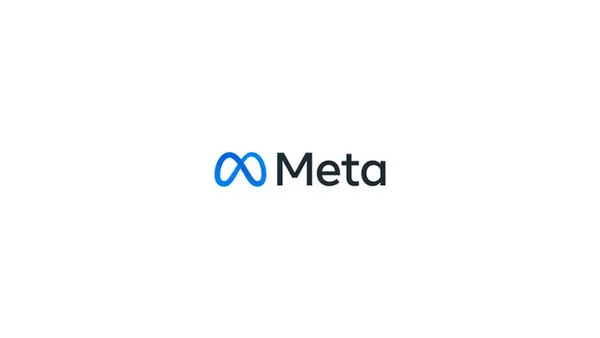In a surprising yet significant move, Meta has announced it will suspend all political, electoral, and social issue ads in Europe beginning in October 2025. This decision affects all of its platforms, including Facebook, Instagram, and Threads, and comes in response to strict new European Union regulations.
This development has drawn attention from both political organizations and marketers who rely heavily on Meta’s vast audience reach. But what does this mean in practice? And what triggered this shift in Meta’s advertising strategy?
Let’s break down everything you need to know.
EU Transparency Law Triggers the Ban
Meta’s decision follows the upcoming enforcement of the EU’s Transparency and Targeting of Political Advertising (TTPA) regulation, which becomes active on October 10, 2025. This new rule mandates that all political advertisements clearly disclose:
- The sponsor of the ad
- The amount spent
- Targeting strategies used
- The source of the data used in targeting
Failure to comply could result in fines of up to 6% of a company’s global annual revenue. As the stakes rise, Meta has chosen to withdraw from the political ad space in the EU altogether, citing “operational complexity” and “legal uncertainty” as primary concerns.
Why Meta Is Backing Out
Meta claims that the scope and demands of the TTPA create overwhelming challenges. Implementing the law would require overhauling how the company currently runs and moderates political advertising across different member states, each with unique political systems and legal nuances.
In an official blog post, the company explained its reasoning:
“The lack of consistent interpretation and the high compliance burden across the EU make it difficult to ensure fair application of the law.”
Rather than risk non-compliance or launch a flawed system, Meta has opted for a blanket ban on political ads across the EU.
Google Has Taken a Similar Path
Interestingly, Meta is not alone in its reaction to Europe’s regulatory landscape. In late 2024, Google also restricted political advertising in the region, citing similar concerns related to the TTPA.
That move, at the time, was seen as drastic. Now, Meta’s alignment suggests a broader trend among major platforms choosing caution over compliance when facing new European transparency laws.
Read more about Google’s decision.
What the Ban Covers (and Doesn’t)
To be clear, Meta’s political ad ban in Europe applies only to paid advertisements that fall under the categories of:
- Political campaigning
- Electoral advertising
- Content on social or societal issues
However, organic content is still permitted. Politicians, activists, and users can continue to post political opinions, campaign updates, and engage in discourse — as long as the content is not promoted via paid ads.
This means political pages can still exist and publish content; they just won’t be able to boost or target it through paid promotions.
Potential Impact on Political Campaigns
This sweeping change will significantly impact political parties, advocacy groups, and nonprofits that rely on Meta’s platforms to:
- Reach new voters
- Spread awareness
- Promote social issues
- Drive civic engagement
Without paid political advertising, campaigns will need to shift strategies. This could involve using:
- Owned media, such as blogs and newsletters
- Influencer partnerships
- Offline outreach and canvassing
- Other digital ad platforms that still allow political messaging
For many small or local campaigns, Meta’s reach and targeting abilities were irreplaceable. This ban may create an uneven playing field, favoring parties with more funding or access to traditional media.
How Advertisers Should Respond
If your organization or client relies on Meta ads for political or social messaging in the EU, now is the time to plan a transition strategy. Here are some steps to consider:
- Audit current ad campaigns that may be impacted.
- Focus on organic reach by creating high-quality content with viral potential.
- Leverage alternative platforms like LinkedIn, TikTok, or regional ad networks.
- Utilize email marketing and community platforms to maintain engagement.
- Build trust through transparency, aligning content with new EU expectations.
What’s Next for Meta and the EU
Meta’s move reflects a larger confrontation between Big Tech and EU regulation. The TTPA is part of a broader legislative push that includes the Digital Services Act (DSA) and Digital Markets Act (DMA). These laws aim to improve accountability, transparency, and user rights online.
But not all tech firms are embracing these changes. Meta’s retreat from political ads might be a signal to regulators: overly rigid compliance burdens could drive platforms away from democratic processes rather than improve them.
This conflict is likely to evolve as:
- The EU prepares for key elections in 2026
- Tech platforms assess global regulatory harmonization
- Other regions observe how Europe’s policy shifts impact digital advertising
Final Thoughts
Meta’s decision to suspend political and social issue ads in the EU is more than a regional update — it’s a powerful statement about the friction between regulatory compliance and platform-scale innovation.
While the Meta political ad ban in Europe may simplify legal risk for the company, it introduces new challenges for campaigns, civil society, and public discourse across the continent.
As platforms adapt and regulators enforce change, the landscape of digital political communication in Europe is shifting fast. Staying informed and flexible will be crucial for all stakeholders.




